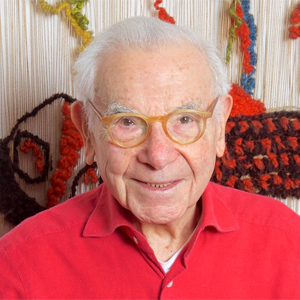Apr 15, 2021 By: admin
 Ted Comet
Ted CometComet started YU at the Talmudical Academy (what is now called the Marsha Stern Talmudical Academy/Yeshiva High School for Boys, or MTA) and holds both bachelor’s and master’s degrees from the University. His son, Dr. Joel Comet ’86F, a clinical psychologist in Jerusalem, holds a Ph.D. from the Ferkauf Graduate School of Psychology. His granddaughter, Jodi Warum ’98S, a special education consultant for several day schools in Monsey, New York, is a graduate of Stern College for Women. Her husband, Aaron, is a graduate of MTA. Ted’s great grandson, Eitan Warum, is a junior at MTA. Yosef, Eitan’s brother, will be entering MTA next semester. Comet’s values as a Jew have informed—and motivated—every act of community advocacy he’s ever undertaken, whether on behalf of people in general or of the Jewish people in particular. And that has applied during the pandemic as well. The lessons that he has learned as an activist for Jewish causes have sustained him. So what advice does he give his own grandchildren and great-grandchildren about how to be a leader? Let’s start in 1946, when Comet traveled to Versailles, France, as a student volunteer from YU. He worked in a home caring for orphaned children, many of whom had come from Auschwitz and other concentration camps or had hidden out in the countryside. During this time, he began a lifelong friendship with a resident named Elie Wiesel. The volunteer commitment was meant to last a year, but Comet stayed on for a second and then returned to YU to receive a degree in social work. “That experience in France altered my life and shaped me,” he says. “I’ve been driven by it in all my work.” Comet organized the first major demonstration for Soviet Jewry in the 1960s. In doing so, he gained experience convening and mobilizing disparate groups to unite for a single cause. In 1965, he capitalized on this valuable background of organizing activist events and came up with the idea for the Celebrate Israel Parade as a way of expressing public support for Israel on the streets of Manhattan. “We had to do something to make Israel more visible,” Comet recalls. “It took us 2,000 years to bring about the establishment of a Jewish state. It’s a miracle that deserves to be celebrated.” In 1968, history beckoned anew: it just so happened the parade was to be held the Sunday before the Six-Day War broke out. “Jews were worried that Israel might go under,” Comet recalls. “And the notion of a second Holocaust was horrifying. So, I converted the parade into a demonstration of solidarity.” The event drew an astounding quarter of a million marchers. His late wife, Shoshana, also served as an example—and an inspiration—to him and to the Jewish community at large. She was a Holocaust survivor who at the age of 40 transmuted her trauma into weaving five six-foot-high tapestries. This freed her to earn her high school equivalency as well as her undergraduate and graduate degrees; ultimately, she became a psychotherapist. Shoshana embodied the same values as Ted and infused her life with the same activist spirit. “She leveraged her pain as a survivor to heal others,” Comet said. “She transmuted trauma into creative energy. She told her story through her art. And her art freed her from the trauma of the Holocaust.” “It’s why so many survivors go into healing professions,” he says. “We best heal ourselves by using our pain and our trauma to heal others.” Doing what he and his wife have done over the decades, Comet said, typifies what motivates many people to do what they do. “If you just dig deep enough, everyone shares a hunger for a sense of meaning, a yearning for purpose and significance. We all have a role to perform here.” Nowhere is that devotion to service better illustrated than in his own family. The four generations of his family who have graduated from Yeshiva University are emblematic of this very passion to give back. His son, Joel, is head of the Trauma Treatment Center at the Shiluv Institute in Jerusalem; his daughter, Diane, is a psychiatric social worker; and his granddaughter is an award-winning learning therapist in day schools. All his actions are based on an overarching philosophical premise: “Trauma,” he says, “can be a source of power” rather than a cause of weakness. “We all have the capacity to surmount trauma.” How else, he argues, can we explain how Jews have survived for thousands of years? “Everybody has trauma,” he says. “But we also have more resilience for coping with it than we know.” Jews, Comet says, take a positive view of life, despite the suffering they have historically faced—an optimistic attitude, a belief in a better future. Challenges to survival forced Jews to be creative. As a result, Jewish culture invites Jews to be PROSPECTIVE, to focus on preparing for future; to be INTROSPECTIVE, to look within themselves for answers about how to live; and to be RETROSPECTIVE.
